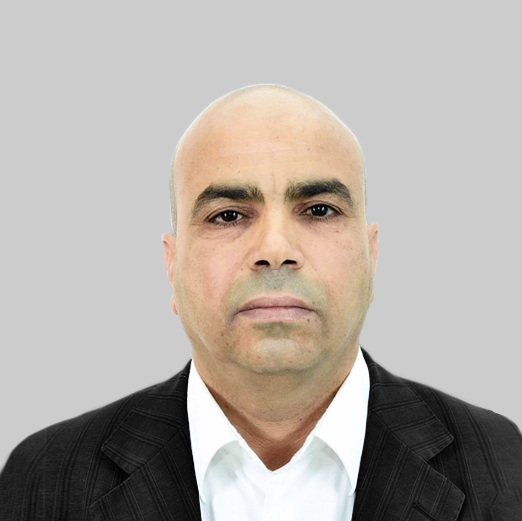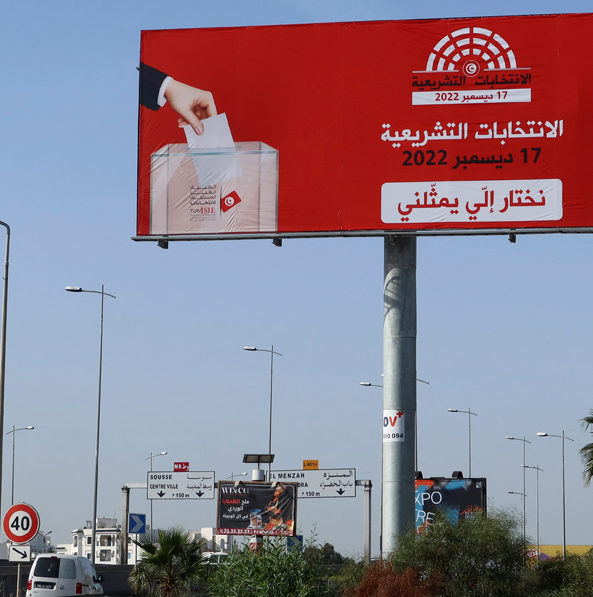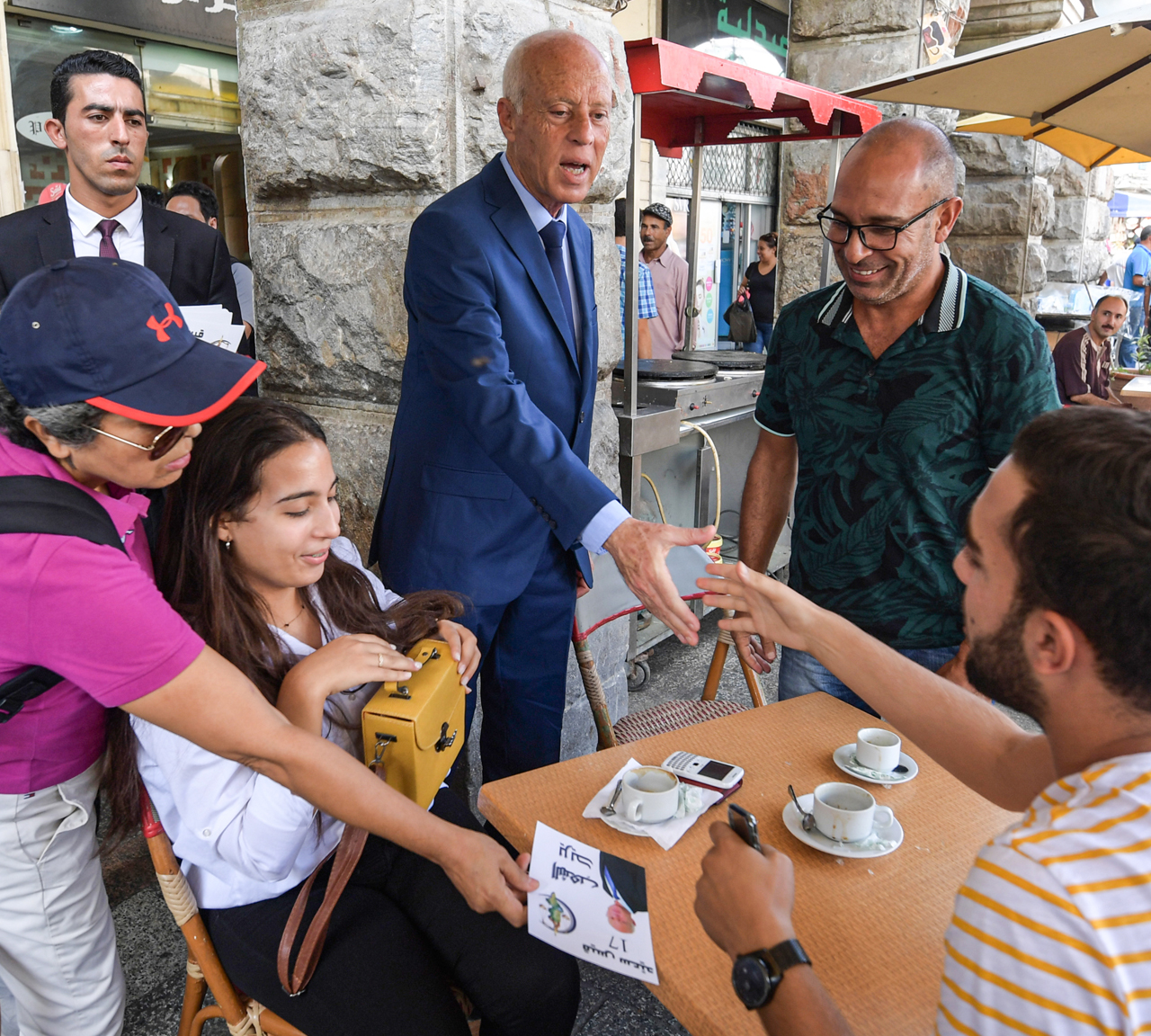The legislative elections, held in Tunisia on December 17, 2022, are the fourth since the events which took place in 2011. They are the first since the adoption of the new Tunisian constitution on July 25, 2022. These are the elections organized by the Independent High Authority for Elections, amid a political crisis that the country is experiencing for years. This year's elections are different from the previous three elections in many levels, the most important of which are the method of election, regulated by the new electoral law, and the powers of the legislature defined by the new constitution.
Accordingly, this paper addresses some of the main issues that will define the upcoming legislative elections in Tunisia, including the most important changes included in the new electoral law, the nature and most important features of candidacies, the conduct of electoral campaigns, and the expected composition of the next legislative council.
Electoral Law Novelties
On September 14, 2022, several amendments were made to the Tunisian Electoral Law (Basic Law) No. 16 of 2014, as these amendments changed the conduct of the electoral process, due to the developments they added to the law. The most important of which are:
First: Reducing the number of deputies to 161 representative and 151 seats allocated to electoral districts inside Tunisia, and 10 seats allocated to electoral districts abroad. This is much less than the previous parliament's 217 seats (Chapter 106-third term).
Second: Voting for individuals, not on the lists, as it was in force during the previous elections, as well as the possibility of holding the elections in two rounds if necessary, that is: in the event that any of the candidates is unable to obtain an absolute majority, then a second round will be repeated for the candidates who obtained the most votes (article 107 is new, article 110 is also new).
Third: Candidates' reliance on self-financing and private funding for their electoral campaigns (article 75 is new).
Fourth: The candidates should reside in the electoral district for which he is nominated (article 19 is new).
Nominations
Candidacies for the legislative elections of December 17, 2022 are characterized by a number of features, the most important of which are:
1- The low number of accepted candidacy applications for the legislative elections, which amounted to 1,058 candidacy applications, compared to 15,737 applications in the 2019 elections, distributed among 572 parties and independent lists. Despite the difference between voting on lists and voting on individuals, and the difficulty of comparing them, the number of candidates for the upcoming elections seems to be very small, around 6.7%.
2- The geographical distribution of candidates varied in the states or governorates with a large population, such as Sousse, represented by 9 seats, the number of candidates in it is 51 candidates, while other governorates with a population less than Sousse are represented by 6 seats. Other governorates witnessed a large number of candidates, such as Kasserine Governorate with 73 candidates, and Sidi Bouzid Governorate with 71 candidates.
3- Ten candidates were able to win seats in the next legislative council before running in the elections, including 7 seats for internal constituencies, and three seats for external constituencies because they registered a single candidacy. For the first time, a group of candidates won their seats once their candidacies were accepted by the Independent High Authority for Elections.
4- The vacancy of seven seats in the next legislative council, for no one is running in seven electoral districts abroad, which will make the parliamentary representation of expatriates be very weak by three representatives out of ten deputies. The phenomenon of winning seats before running in the elections, and the vacancy of other seats in the next legislature, reveal the reluctance to run for elections.
5- Boycotting a number of parties that were active in the previous elections, such as Ennahda, the Dignity Coalition, the Free Destourian Party, and some other parties that are less represented in previous councils; such as the Labor Party, in addition to some of the parties that formed the National Salvation Front, like the remnants of the Heart of Tunisia Party, Al-Amal, and Hirak Tounes Al-Irada, also a number of organizations and associations, in addition to other parties such as Afek Tounes and the Socialist Party.
6- The participation of the July 25 Coordination and some other parties, which are likely to win a limited number of seats, such as the People's Movement, the Popular Current, the Alliance for Tunisia, and the Tunisia Forward Movement.
Expected Composition of the Next Legislative Council
A study of the Tunisian political scene, in the recent period, shows that most of the candidates for the legislative elections affiliate to the coordination and parties supporting the July 25, 2022 track. Through a study of the distribution of candidates, according to their professional affiliations, it is expected that the composition of the legislative council that will emerge from the upcoming elections will be as follows:
1- The dominance of state employees over parliament: Statistics, published by the Independent High Authority for Elections on its website, showed that the percentage of nominated state employees is within 50%, that is about half of whom are employees of the Ministry of Education.
2- The weak percentage of academics and university candidates for elections: who estimated at about 2.8%, besides the phenomenon of the university elite's lack of interest in public affairs, which can be observed since the events of 2011, as a large percentage of them did not participate in it and did not work to write about it.
3- The decline in the percentage of candidates from the self-employed: especially lawyers, jurists, accountants, and traders, who amounted to 14% of the total candidates, despite the fact that they represented 18% of the previous legislative council, taking into account that the percentage of candidates does not mean the percentage of actual representation in the legislative council.
4- The absence of women, or their weak representation in the next electoral council: where the number of women candidates is 122 women, that is about 12% of the total candidates. Unlike previous representative assemblies, in the Constituent Assembly in 2011, women represented about one-third of the seats (29 percent of the seats) and 31 percent in parliament in 2014. The new electoral law abolished the provisions of gender parity that were in force in electoral laws. This is one of the most important gains women have made after the events of 2011.
In this context, it should also be noted that some of the conditions, included in the new electoral law, have made it difficult for women to run for these elections, the most important of which is the requirement to obtain 400 recommendations from voters from their electoral district, especially the requirement of self-financing and private financing of the electoral campaign, because most of them do not have a network that enables them to secure a large number of recommendations, and they do not have the financial capabilities of the majority of men.
Election Campaigns
Candidate campaigning continues until December 15, 2022, December 16 is the day of electoral silence, and elections will be held on December 17 inside the country, and December 15, 16 and 17 abroad. Based on what has been published and published about these campaigns, the following can be noted:
First: The absence of competition between candidates, unlike the electoral campaigns in previous legislatures, which were the most intense competition between independent lists, especially between party lists.
The slowness of election campaigns is evident through the absence of pre-scheduled popular meetings, propaganda tents, and reliance on banners and propaganda pendants. The election campaigns of MPs were limited to attending some unscheduled meetings with small groups, most of them in popular cafes, distributing electoral data on weekly market days in many cities and rural areas, hanging candidates' photos and electoral statements on some cars, limited attendance in some traditional media, and the dependence on social media.
Among the most important reasons that explain the lack of enthusiasm and competition in the electoral campaigns are the lack of material, logistical, and human resources for many candidates to manage their electoral campaigns, the reluctance of the people to keep up with the electoral campaigns, the reduction of the powers of the Legislative Council, and the deterioration of the living conditions of most of the population, especially the popular groups and groups that once belonged to the middle class and rolled towards the popular class.
Second: The propaganda that adopted cyberspace, specifically Facebook pages, which included a number of slogans and videos, some of which seek to reflect a negative image of the candidates, with the aim of reducing voter turnout to vote in the legislative electoral entitlement, which made the Independent High Authority for Elections issue a communiqué on December 5, 2022, clarifying to voters and the media that most of the videos and photos, circulated on social media and websites, are not related to candidates for the elections of members of the People's Assembly. This comes in the context of a systematic campaign to distort the electoral process.
Third: Candidates' programs: Since the upcoming legislative elections are characterized by their geographical, local, and regional dimension, more than their political dimension. Most of the candidates' electoral programs focused on local and regional affairs, the majority of them related to development, combating marginalization, improving dilapidated infrastructure, and paying attention to health, education, and security. Most electoral promises appear to go beyond the powers of the legislature set out in the new constitution.
Article 68 of the new constitution gives the president the right to submit bills, treaties, and financial laws to the House of Representatives, and gives priority over other bills, and under article 69, the head of state and government can reject deputies' proposals and revisions if they disturb the state's financial balances. The legislature lost the powers to monitor and hold the head of state and government accountable. It becomes in force of the new constitution, the powers of the legislative authority will be limited to discussing local projects, most of which are small projects, and their implementation remains subject to the approval of the president to provide the necessary appropriations, especially since he is the only one who has the control of financial laws.
In conclusion, the differences between the new constitution and the previous constitution are clear in determining the system of government in Tunisia, and between the new electoral law and the electoral law that preceded it in determining how to vote, with regard to the system of government, the new constitution enshrined the presidential system and greatly limited the powers of the legislative council, while the previous constitution adopted a hybrid political system that combined the presidential and parliamentary. As for the new electoral law, voting relied on individuals and not on the lists that were in force in Previous electoral law. The July 25, 2021 process considers the new constitution and electoral law as a solution to the problems that the emerging experience in Tunisia was experiencing, as the new constitution greatly limited the influence of the legislative authority, and the new electoral law greatly limited the influence of parties. Some see these steps as the solution to what is known in Tunisia as the period of crisis experienced during the past decade, in which Ennahda ruled the country.
*This study expresses its author's opinion. Strategiecs is under no liability resulting from the author's position or the opinion in terms of security, political, economic, social, or other issues. In addition, such opinions do not necessarily reflect the Strategiecs's position and/or point of view.
Keep in touch
In-depth analyses delivered weekly.










-j,-%D8%AA%D9%88%D9%86%D8%B3.jpg)